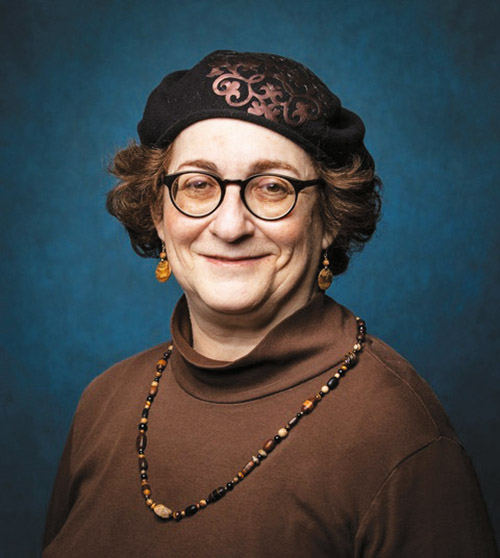
Collection donated by Dr. Ronald and Miriam Rubin provides insight on the American Jewish experience.
(Courtesy of YU) More than 350 newspapers published in North America between 1734 and 1869, each of which chronicles an important moment in American Jewish life, were donated by Dr. Ronald and Miriam Rubin, longtime partners and benefactors of the YU Libraries.
The earliest newspaper issue in this collection predates by over four decades the American Revolution. Clippings range from an advertisement placed by Haym Salomon—the famed philanthropist who funded George Washington’s war efforts—to an 1859 appeal for the Jewish community impacted by the French-Spanish invasion of Morocco; a rare 1853 illustration of a synagogue located on Clinton Street in New York’s Lower East Side; and an 1864 New York Times front-page feature on a Purim masquerade benefiting orphans.
Among the most treasured and historically significant item in the collection is an issue dated September 15, 1790, detailing correspondences between George Washington and the Newport Hebrew Congregation. These letters not only highlight President Washington’s unique relationship with the Jewish community but also provide a lens into the founding father’s commitment to ensuring a religiously tolerant society.

Washington wrote in his letter that “The Citizens of the United States of America have a right to applaud themselves for having given to mankind examples of an enlarged and liberal policy… For happily the Government of the United States, which gives to bigotry no sanction, to persecution no assistance requires only that they who live under its protection should demean themselves as good citizens, in giving it on all occasions their effectual support.”
Dr. Rubin (YUHSB ’57) is a noted collector of antiquarian Americana and was a professor of political science at the City University of New York’s Borough of Manhattan Community College for over 50 years. He generously donated the rare collection, which he amassed while conducting research on American Jewish life, to Yeshiva University. He and his wife, Miriam, have already contributed over 100 rare items to the library collection. In 2019, Dr. Rubin authored “Strangers & Natives: A Newspaper Narrative of Early Jewish America 1734 –1869,” and based his research in the book on the artifacts given to YU.
Yeshiva University held an event celebrating this gift on December 11, 2022, in the Mendel Gottesman Library.
As he presented the gift, Dr. Rubin noted that “this collection chronicles how the Jews developed from being strangers to becoming acceptable and respected citizens, and how that development took place in the eyes of the Jews, how they maintained their loyalty to their Yiddishkeit while developing the American enterprise, and how the general public considered the Jews of the time.”

Despite the challenges of antisemitism, adaptation and assimilation, these papers, he said, highlight that “there was always significant interest in Jewish activities [from the general public] and the point can be easily made that in the development of colonial and republican America, Jews were very devoted to the American ideal.”
Shulamith Berger, curator of special collections at YU’s Mendel Gottesman Library, remarked at the collection’s reception ceremony that “one of the highlights of these primary sources is the immediacy of the information for both researchers and students. Observers will read these documents in the way a contemporary would have read it, and it places the Jewish material directly in the context of American life and the happenings of general society.”
Berger concluded, “Professor Rubin is always bringing gifts when he visits, and he’s been a partner in building up the libraries, and the library is most grateful to Dr. Rubin for this unique contribution to the University’s collections.”














